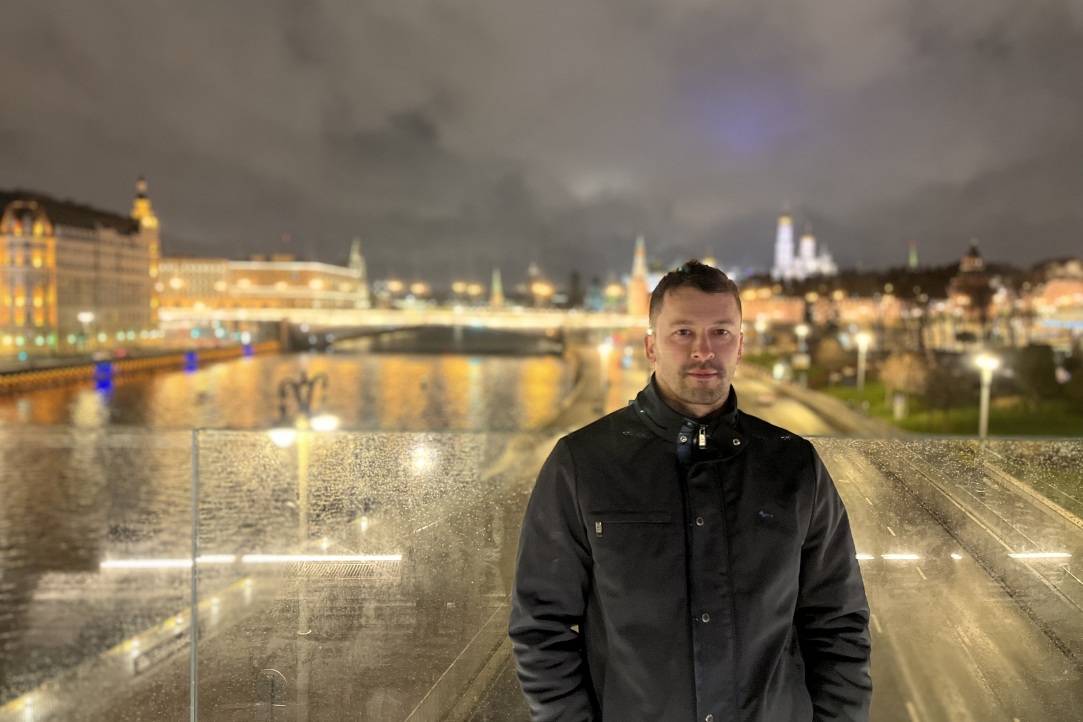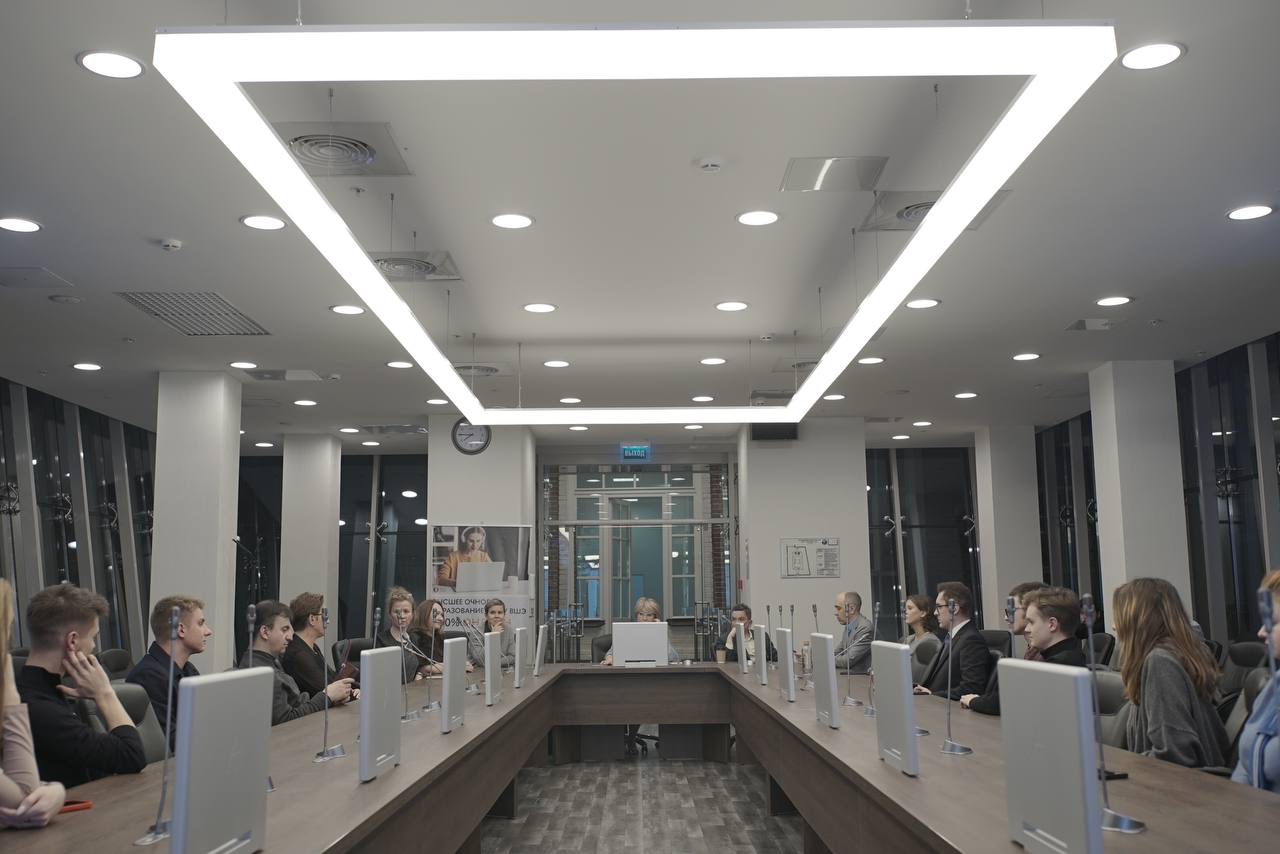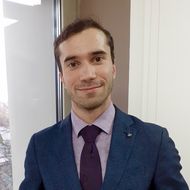- A
- A
- A
- ABC
- ABC
- ABC
- А
- А
- А
- А
- А
- HSE University
- Faculties
- Faculty of Economic Sciences
- School of Finance
- News
- ‘HSE University Gives You Everything You Need to Manage the Research Process’
-
The School
-
RESEARCH ACTIVITIES
- Laboratories
- Series “Advanced studies in emerging market’s finance” at Springer Nature o Networking with international academic associations
- Networking with international academic associations
- Research seminars
- International PhD workshop
- The International Seminar «ESG Transformation»
-
RESEARCH WORKING GROUPS
- Research Working Group "Innovations in the banking sector, its financial stability and prudential regulation"
- BUSINESS EDUCATION
- Networking with business associations
- Networking with professional associations
- Center for Research on Non-Financial Reporting
-
DATABASES
119049 Moscow, Russia
11 Pokrovskiy boulevard, room S629
Phone:
+7 (495) 772-95-90*27447, *27947, *27190
+7 (495) 916-88-08 (Master’s Programme Corporate Finance)
- Email: df@hse.ru
Head of Corporate Finance Research Center, Dr., tenured professor

+7495-772-95-90 (add. 27447)

+7495-772-95-90 (add. 27947)
The HSE School of Finance is the leading Russian competence center in the field of corporate finance, business valuation, banking, stock market, risk management and insurance, accounting and audit.
HSE is the first Russian university in the global ranking "QS - World University Rankings by subject", 2022 in the subject area of Accounting and Finance. Moreover, the university is the 1-st in the rating "THE World University Rankings by subject" in the subject area of Business & Management Studies, 2022
Cherkasova V. A., Nenuzhenko I.
Journal of Economic Integration. 2022. Vol. 37. No. 1. P. 54-92.
Electronic Journal of Applied Statistical Analysis. 2022. Vol. 15. No. 1. P. 187-210.
Kolade S. A., Semenova M.
Financial Economics. FE. Высшая школа экономики, 2022. No. WP BRP 87/FE/2022.
Управление финансовыми рисками. 2022. Т. 70. № 2. С. 108-120.
In bk.: The 8th International Conference on Information Technology and Quantitative Management (ITQM 2020 & 2021): Developing Global Digital Economy after COVID-19. Vol. 199: The 8th International Conference on Information Technology and Quantitative Management (ITQM 2020 & 2021): Developing Global Digital Economy after COVID-19. Manchester: Elsevier, 2022. P. 798-805.
Korablev D., Poduhovich D.
Journal of Corporate Finance Research. 2022. Vol. 16. No. 1. P. 136-145.
Olkhovik V., Lyutova O. I., Juchnevicius E.
Научно-исследовательский финансовый институт. Финансовый журнал. 2022. Vol. 14. No. 2. P. 73-90.
Churyk N. T., Anna Vysotskaya, Kolk B. v.
Journal of Accounting Education. 2022. Vol. 58.
Абдрахманова Г. И., Васильковский С. А., Вишневский К. О. и др.
М.: Издательский дом ГУ-ВШЭ, 2022.
Абдрахманова Г. И., Васильковский С. А., Вишневский К. О. и др.
М.: Национальный исследовательский университет "Высшая школа экономики", 2022.
Гришунин С. В., Сулоева С. Б., Пищалкина И. И.
Организатор производства. 2022. Т. 30. № 1. С. 60-72.
Гришунин С. В., Сулоева С. Б., Пищалкина И. И.
Экономический анализ: теория и практика. 2022. Т. 21. № 3. С. 478-496.
S. Grishunin, E. Naumova, N. Lukshina et al.
Russian Management Journal. 2021. Vol. 19. No. 4. P. 475-493.
Journal of Corporate Finance Research. 2022. Vol. 16. No. 1. P. 99-112.
Grishunin S., Bukreeva Alesya, Alyona A.
In bk.: The 8th International Conference on Information Technology and Quantitative Management (ITQM 2020 & 2021): Developing Global Digital Economy after COVID-19. Vol. 199: The 8th International Conference on Information Technology and Quantitative Management (ITQM 2020 & 2021): Developing Global Digital Economy after COVID-19. Manchester: Elsevier, 2022. P. 190-197.
 International Conference “Future Directions in Accounting and Finance Education”, 27-28 May 2019, Moscow, Russia
International Conference “Future Directions in Accounting and Finance Education”, 27-28 May 2019, Moscow, Russia
Edited by: А. Б. Высотская, B. v. Kolk.
Vol. 58. Elsevier, 2022.
Karamysheva M., Seregina E.
Journal of International Money and Finance. 2022. Vol. 127.
In press
Journal of Economic Dynamics and Control. 2022. Vol. 137.
Karamysheva M., Skrobotov A.
Journal of Economic Dynamics and Control. 2022. Vol. 138.
Известия Санкт-Петербургского государственного экономического университета. 2022. № 4. С. 144-155.
Тихомиров Д. В., Цехомский Н. В.
Экономика и управление. 2022. Т. 28. № 1. С. 16-24.
Селезнёва З. В., Евдокимова М. С.
Финансы: теория и практика. 2022. Т. 26. № 3. С. 64-84.
Evdokimova M., Stepanova A. N.
In bk.: 38th EBES Conference - Program and Abstract Book. Istanbul: EBES, 2022. P. 39.
Assanskiy A., Shaposhnikov D., Tylkin I. et al.
Journal of Behavioral and Experimental Economics. 2022. Vol. 98.
Teplova T., Mikova E., Munir Q. et al.
Economic Change and Restructuring. 2023. Vol. 56. No. 1. P. 515-535.
Повх К. С., Кокорева М. С., Степанова А. Н.
Экономический журнал Высшей школы экономики. 2022. Т. 26. № 1. С. 9-36.
Anton Markov, Zinaida Seleznyova, Victor Lapshin.
Journal of Finance and Data Science. 2022. Vol. 8. P. 180-201.

‘HSE University Gives You Everything You Need to Manage the Research Process’

Ion Frecautan chose to pursue his doctoral studies at HSE University because of its reputation as a leading research university and its extensive academic infrastructure. With the latest enrolment campaign for doctoral schools now underway, we spoke to Ion about his green finance research at the Faculty of Economic Sciences, his activities as a lecturer, and more.
Choosing HSE Moscow
For me, the Russian academic environment was always an important educational objective to pursue and to discover because it is multicultural and makes an outstanding contribution to global scientific heritage. I was curious to find out more about the economic and financial mechanisms of a country which has a resource-driven economy. My decision was quite simple and pragmatic—according to different rankings, HSE is considered a leading national research university in Russia for studying economics and finance.
When I contacted the head of the School of Finance directly, I was really surprised at their openness to give additional information on the research direction, which ultimately fit my research aspirations perfectly.
Later, I found out that HSE also has a modern academic infrastructure and that students have both online and offline access to rich academic resources and facilities for non-academic extra-curricular activities. I was also surprised discover that the study and academic culture at HSE has both advanced English and Russian directions.
The Admission Process
The admission process was straightforward and very intuitive. As a foreign student, I applied through a study platform and also benefited from full support from local representatives of the Russian Centre of Science and Culture in Bucharest. I had two interviews with representatives of the centre and with representatives of HSE University. In general, every student should have a strategy to succeed in the admission process. My strategy was to determine whether HSE could be my best choice and provide me with everything I need to be successful in my research. I used online resources and contacted the School of Finance directly to make sure that my research interest fit with HSE.
My discussion with Prof. Irina Ivashkovskaya inspired me even more to join Faculty of Economic Sciences and undertake my research in finance with the School of Finance.
Green Finance
My general research is about the way green finance can and will help companies to turn their business models towards sustainable development, especially in emerging capital markets. Specifically, I am researching the performance drivers of green bonds in emerging economies, looking into a wide spectrum of countries’ characteristics such as dynamics of policy changes, regulatory specifics, level of development, etc. This research area has both academic and practical implications for companies and governments as a demonstration of the proper regulatory construction to accelerate national and corporate sustainable development through green finance, more specifically through green bonds. This research area is complex and quite new for developing countries (for example, the first issuance of green bonds in Russia was in 2018), which brings novelty to the research. For me, research activity in the Laboratory of the School of Finance also means participating in the creation of ‘academic contributions/content’ for the Springer book series Advanced Studies in Emerging Markets Finance.
A Collaborative Culture
The university gives you all the instruments you need to correctly manage the research process, including training (mandatory and additional courses) to get in depth theoretical knowledge. I also had the luck to work with colleagues from the Corporate Finance Centre on a project about non-financial reporting, ESG, etc. The faculty-level research seminars organised by Professor Olga Demidova were a true academic platform where we students had the chance to see our peers’ research projects, brainstorm, and get feedback from colleagues about our own work. The division-level research seminars supervised by Prof. Ivashkovskaya were another platform where we engaged in research discussions about the achievements of our colleagues and shared our own achievements.
For me, HSE is a dynamic outlet where students can continuously enrich their knowledge and academic capabilities.
At the School of Finance, I also have the chance to run seminars in ‘Sustainable Finance’ for master’s students. I have gained valuable knowledge about this subject from the students while obtaining valuable pedagogical experience. One challenging project occurred during the pandemic: I had to prepare and record an online course in Sustainable Finance for the online 'Master of Business Analytics' programme with some HSE colleagues and experts from Russian companies. I learned about participating in a project that efficiently combined technologies, modern and novel teaching practices, and practical case studies from real businesses.

My peers from HSE University are always open to share ideas and help in the educational process, which is a big part of the university culture. A special person to mention here is Elena Norkina, the Manager of the Office of Doctoral Studies, which gives valuable support to students. I also want to say many thanks to my academic supervisor, Prof. Irina Ivashkovskaya, who is continuously supporting me with valuable insights on the specifics of my research as well as the research activity itself, and who is basically preparing me to become a researcher with international exposure.
I actively interact with my colleagues; we help each other a lot, and I am happy to say that the interdisciplinary academic culture at HSE University is built on the principles of openness and cooperation.
Life in Moscow
Moscow is a modern and complex city that adds more colour to the study process. It is a multicultural city where you can meet people from around the world. It is also the most important cultural centre in Russia—you need years to understand and assimilate it. As a student, you also have a wide range of opportunities to participate in social events, concerts, and parties, which is always great and helps you to get to know people. My favourite places are VDNH and the State Tretyakov Gallery (especially the New Tretyakov Gallery), but of course there are many more places left for me to visit. Hopefully, I can see an unforgettable performance at the Bolshoi Theatre.
Future Plans
After graduating from the PhD programme, I will create a second pillar for my further professional development: research activity. From my previous experience, I realised that professional and educational practices should go hand in hand. Moreover, the present and the future development of our society, from my point of view, is developing based on knowledge-based rules and principles. Pursuing PhD studies at HSE will strengthen my professional expertise in corporate finance and management. In addition, I will have a strong baseline to continue my academic research activity in finance, specifically studying the influence of non-financial capital on a company’s value creation process.
My exposure to different educational and professional events (conferences, PhD workshops, roundtables, PhD seminars, etc) in sustainable finance, the green economy, and ESG show that research directions at HSE University are in line with the problems humanity is currently struggling with.
Additionally, I can say that based on the projects we have been working on in the Laboratory of Corporate finance, the research direction at HSE University is on the right track to increase competitiveness through innovations and sustainable development in the future.
Enrolment in HSE University doctoral programmes is now underway. Application period for Russian government scholarships for international students is February 1–March 1, 2023.
Ion Frecautan
- About
- About
- Key Figures & Facts
- Faculties & Departments
- International Partnerships
- Faculty & Staff
- HSE Buildings
- Public Enquiries
- Studies
- Admissions
- Programme Catalogue
- Undergraduate
- Graduate
- Exchange Programmes
- Summer University
- Summer Schools
- Semester in Moscow
- Business Internship
-
https://elearning.hse.ru/en/mooc/
Massive Open Online Courses
-
https://www.hse.ru/en/visual/
HSE Site for the Visually Impaired
-
http://5top100.com/
Russian Academic Excellence Project 5-100
- © HSE University 1993–2024 Contacts Copyright Privacy Policy Site Map
- Edit


